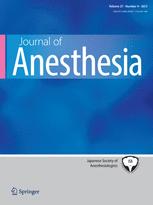 Two papers about the molecular underpinnings of lung damage are being retracted following an investigation at Oita University in Japan, which revealed that images from both papers had been used to depict “different experimental conditions” in a third paper (which has not been retracted).
Two papers about the molecular underpinnings of lung damage are being retracted following an investigation at Oita University in Japan, which revealed that images from both papers had been used to depict “different experimental conditions” in a third paper (which has not been retracted).
It’s not clear which of the authors were the subject of the investigation. The two retracted papers, “Nafamostat mesilate inhibits the expression of HMGB1 in lipopolysaccharide-induced acute lung injury” in the Journal of Anesthesia and “Coexpression of HSP47 Gene and Type I and Type III Collagen Genes in LPS-Induced Pulmonary Fibrosis in Rats” in Lung, both originally published in 2007, share the same first author — Satoshi Hagiwara, whose affiliation is listed as the Department of Brain and Nerve Science, Anesthesiology, Oita University Faculty of Medicine. The papers have been cited 13 times and 12 times, respectively, according to Thomson Scientific’s Web of Knowledge. Hagiwara is also the first author on the third paper that contains the duplicated images.
The first retraction notice reads:
This article published in J Anesth 2007;21:164–170 has been retracted by the Editor-in-Chief as Fig. 1C has been used to depict different experimental conditions in Fig. 1B in Eur J Pharmacol 2007;564:174–180. A decision of misconduct was reached after an investigation by Oita University.
And here’s the second one, which is a bit more detailed:
The authors retract the article “Coexpression of HSP47 Gene and Type I and Type III Collagen Genes in LPS-Induced Pulmonary Fibrosis in Rats” by Hagiwara S, Iwasaka H, Matsumoto S, Noguchi T and Yoshioka H, Lung, 2007, 185, 31–37.
An investigation by the Oita University concluded that identical images have been used to depict different experimental conditions in other publications. Specifically, in Fig. 4B (The rat lung was treated with intratracheally administered LPS and after 14 days was stained with Azan.) was previously published in the Eur J Pharmacol, 2007, 174–180 in Fig. 3A (Azan staining of rat lung. Lung of rat treated with LPS 24 days was stained with Azan to visualize collagen fibrils, showing an increase in the collagen content of the lung parenchyma). The authors apologize to the scientific community for the need to retract this article.
An author on all three papers, Takayuki Noguchi, shares a name and affiliation with the last author on two papers retracted from Blood in 2013 after investigations at two institutions – Oita University and Nagoya City University — determined that the data “were obtained using fraudulent methods and hence cannot be considered reliable.” (Those investigations focused not on Noguchi, according to the Blood retraction notice, but on two of his colleagues, Kenji Okajima and Akio Mizutani.)
We haven’t heard back from Higawara, Noguchi, or the editor of Lung. The editor in chief of the Journal of Anesthesiology, Kazuyoshi Hirota of Hirosaki University, told us:
We have finally retracted the article as the results of investigation by the Japanese Society of Anesthesiologists (JSA), which was based on the results of investigation by investigation of Oita University.
If you wish to know more information, please contact Oita University (principal investigator) or the JSA office.
We reached out to the Japanese Society of Anesthesiologists and to Masatsugu Moriyama, the dean of the Faculty of Medicine at Oita University. We’ll update if they reply.
Update: 6/10/15 11:33 a.m. eastern: A reader let us know that Takayuki Noguchi has died. A Japanese obituary notice seems to corroborate that, although we’re relying on Google translate.
Hat tip: Rolf Degen
Like Retraction Watch? Consider supporting our growth. You can also follow us on Twitter, like us on Facebook, add us to your RSS reader, and sign up on our homepage for an email every time there’s a new post.
Great headline.
Takayuki Noguchi died on August 19, 2014.